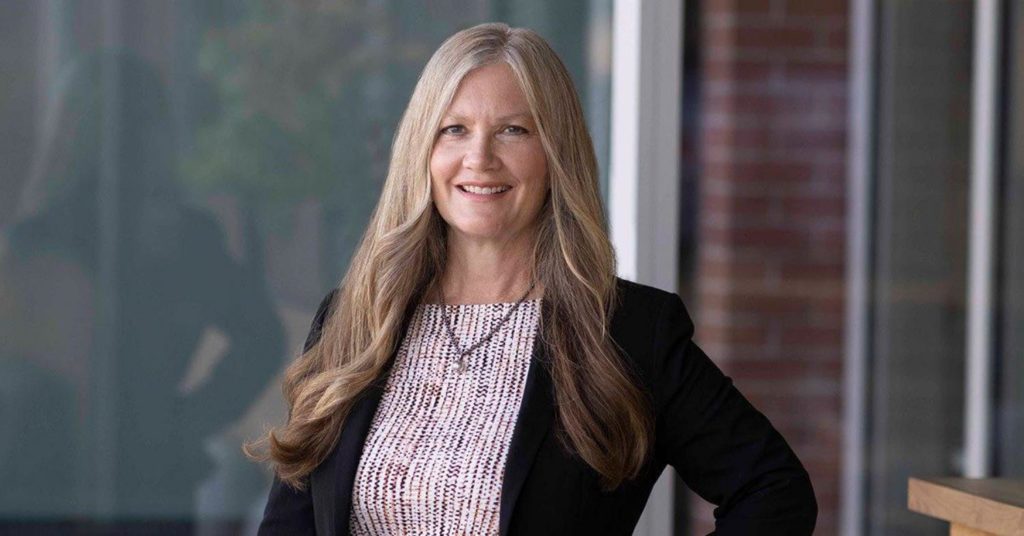
Alisa Rice, AIA, ACHA, EDAC, LSSWB
Senior Associate, Senior Healthcare Planner, Project Manager and Architect
Hord Coplan Macht, Denver, CO
How has ACHA certification enhanced your career in healthcare architecture and/or design?
ACHA board certification differentiates architects with specialized healthcare skills for clients, employers, colleagues, and contractors. It is a credential that AIA, ASHE, and healthcare clients recognize. I’ve recently noticed it becoming more requested and important on RFPs. Being an ACHA board certified architect gives clients the confidence that the certified healthcare architect has competency, experience, and knowledge specific to the healthcare industry and is up to date on the current issues.
Serving on two ACHA committees has connected me to other healthcare architects, and this has been invaluable for sharing ideas and learning from each other. Volunteering on these committees also allows me to give back to the healthcare design specialty and work to maintain the rigorous standard of the healthcare architecture profession.
What would you say to anyone interested in the field?
Healthcare Architecture is an exciting and rewarding profession and is always changing so there is never a dull moment and it’s a very fulfilling career. Healthcare clients are very knowledgeable, and I’ve enjoyed working with and learning from them throughout the 25+ years I have been planning and designing healthcare facilities.
With this profession, you can positively affect patients and families along their healing journey. With good healthcare design you can improve the patient, family, and staff experience in the healthcare facilities we design. I have also found that by including a wide range of user group members such as patients and families, infection control, housekeeping, nurses, physicians, and other stakeholders you will create better designs that will meet the various users’ needs in the building since each have unique viewpoints and requirements.
We must get the design right the first time, it is too expensive to change it during construction or after it is built. By including research, evidence-based design, and Lean thinking it helps us design spaces that work. Utilizing mockups and 3D walkthroughs in our meetings has really helped our user groups better visualize and understand what they are getting.
What led you to becoming ACHA certified?
As an architect I wanted to get this certification since it shows my dedication and special knowledge of the healthcare field. For several years I planned to apply for this certification and my previous office leader Tom Harvey, FACHA Emeritus gave me the encouragement to go ahead and pursue it. His dedication and expertise in healthcare architecture was inspiring and he recommended this certification since he believed it sets you apart as a design professional.
What are your thoughts on challenges regarding the future of healthcare and how it might have affected you personally or your design practice?
The effects of the COVID-19 pandemic made us all think more about how flexible the buildings we design must be and how to make them easily adaptable in the future. The way healthcare changes constantly, we need to help owners peer into their future, and not overspend but make spaces more flexible. The need for fresh air and natural ventilation has also become more important along with the increased use of technology such as telemedicine and AI. Staff respite spaces for restoration with views of nature also need to be incorporated into our designs to help with burn-out within the healthcare profession. I think that we have become more innovative because of the pandemic.
About You
Education: Bachelor of Architecture, Oklahoma State University
I started my healthcare architecture career in Tulsa, OK after graduation then relocated to the Denver, CO area in 2003 and have lived here ever since. My family and I enjoy exploring the outdoors in Colorado hiking, biking, paddle boarding and skiing with friends. When we aren’t exploring Colorado, we like to travel and sightsee in other states or countries.
Accomplishments
My ACHA certification was a recent big accomplishment in 2019. I also serve on the Colorado American Institute of Architects Academy of Architecture for Health steering committee and recently helped organize, and I moderated a successful panel discussion “The Future of Healthcare Design | Impacts of Pandemics” with panelists Susan Zacharakis, Mike Zorich, Corey Gaarde, Mark Montgomery, and Joel Boado in June of 2021. Panelists and attendees were able to join from across the US since it was a virtual event.
I’ve been fortunate to have worked on many large and small successful award-winning inpatient and outpatient replacement Healthcare facilities with great project teams both locally and in other states using various delivery methods. I would say that Integrated Project Delivery with the “Big Room” concept is my favorite delivery method since there is more collaboration early in the project involving the entire project design team along with the owner, contractor, and sub-contractors. Design-build would be my next favorite delivery method and I’ve noticed it is becoming a popular choice by owners.